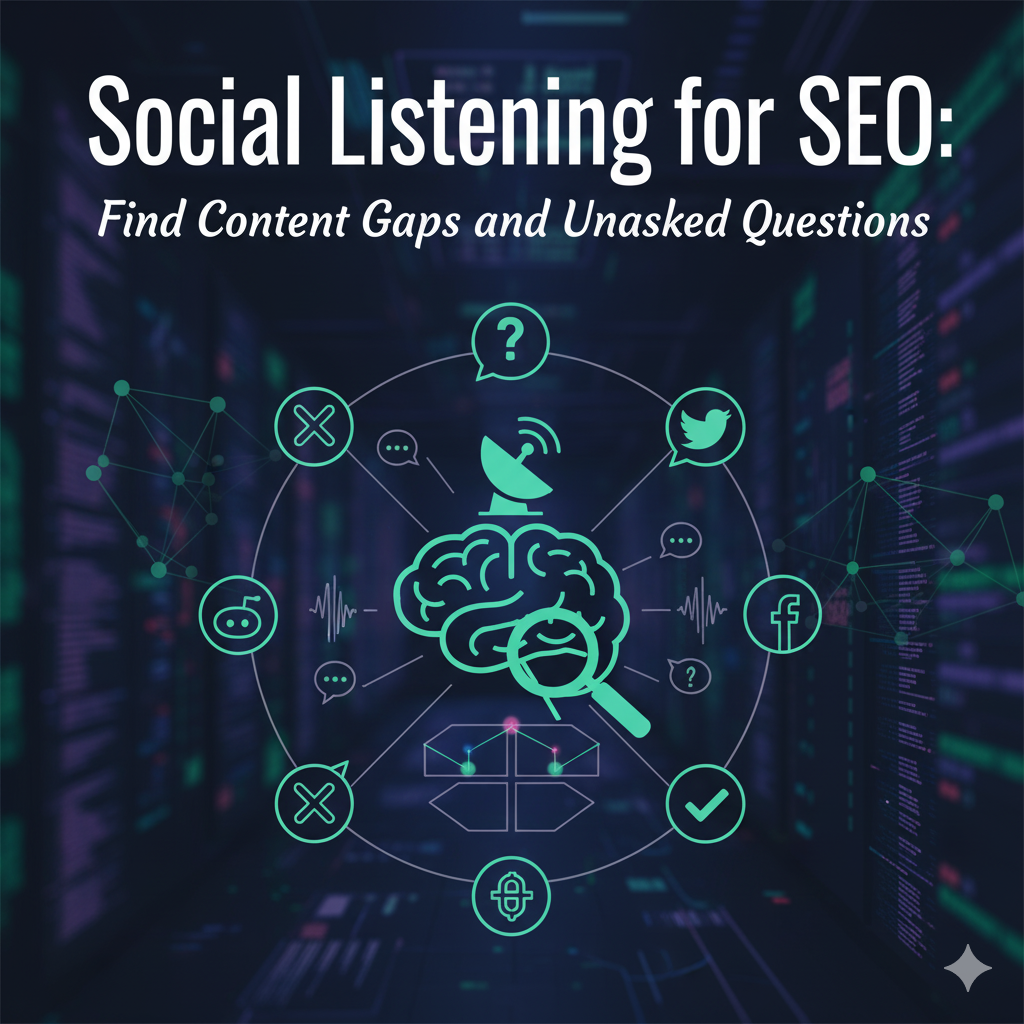
Social Listing for SEO: Find Content Gaps and Unasked Questions
SEO isn’t just about jamming keywords into blog posts anymore. Sure, keyword research and on-page tweaks still matter, but if you really want to crush it in search results, you need to know what people are talking about outside Google too. That’s where Social Listing comes in. Think of it as eavesdropping… but the good kind. Instead of guessing what questions your audience might ask, you actually hear them, spot trends, and find gaps that other tools miss.
What’s Social Listing, Anyway?
Social Listing isn’t just tracking mentions of your brand. It’s scanning the whole digital chatter — social media, forums, review sites — to see what people are saying about your niche, products, or industry. Then you dig a bit deeper: what’s the sentiment, what questions keep popping up, and what problems aren’t being solved? Once you’ve got that, you can turn it into content that actually hits the mark.
Going Beyond Keywords
Keywords tell you what people type into Google, but they don’t always tell the whole story. Online, people speak in sentences, slang, and sometimes oddly specific problems. For example, instead of searching “best running shoes for knee pain”, someone might ask in a Reddit thread:
“Has anyone tried Hoka shoes for IT band pain?”
That’s a goldmine for high-intent content—the kind that positions your brand as genuinely helpful.
How to Use Social Listing for SEO
Here’s how to turn all that online chatter into an actionable SEO strategy.
1. Find the Gaps
Your competitors might own the obvious keywords, but Social Listing shows you the stuff they missed—the long-tail questions people are asking that no one’s answering well. Tip: set up streams for your main products or services and track recurring questions. For instance, a software company might spot tweets about a tricky integration and create a how-to guide addressing exactly that problem.
2. Spot Unasked Questions
Sometimes users don’t even know the right words to search. That’s where forums, Quora, and Reddit shine. Phrases like “How do I…?” or “Is it normal that…?” are neon signs screaming, “Write a post about this!” Build topic clusters around these real-world questions to create a content hub that actually satisfies people.
3. Catch Trends Early
Timing is everything. Social Listing lets you see spikes in interest before they explode into big keywords. Maybe a new tech update goes viral or a seasonal problem pops up—if you produce content quickly, you can ride the traffic wave.
4. Speak Their Language
Google wants content that shows Expertise, Authority, and Trustworthiness (E-A-T). Using the exact words your audience uses online makes your content feel authentic, relatable, and trustworthy. Look at the phrases people use when discussing issues, then weave them into headings, body copy, and meta descriptions.
Why It Matters
Social Listing bridges the gap between what people are asking and the content you’re producing. Instead of guessing, you’re responding directly to audience needs—creating a strategy that brings traffic, builds trust, and keeps people coming back. In a noisy digital world, the brands that really listen are the ones people notice.
FAQs
-
How’s Social Listening different from Social Monitoring?
Monitoring is reactive—checking mentions to respond. Listening is proactive—scanning broader conversations to spot trends and insights that inform SEO strategy.
-
Aren’t keyword tools enough?
Keyword tools are great for volume and competition, but they don’t tell you why people are searching. Social Listing gives context, emotion, and the real language users use.
-
Which tools should I use?
Brandwatch, Sprout Social, Hootsuite Insights, Talkwalker, and BuzzSumo are solid choices. Also, never underestimate niche forums like Reddit and Quora.
-
Can this help local SEO?
Yes. You can geotarget conversations about your city, uncover local content opportunities, or discover complaints and questions about nearby businesses.
-
How fast will I see results?
SEO is a marathon, not a sprint. It might take a few months to gather data, create content, and see rankings climb. But you’ll end up with a sustainable stream of content that answers what your audience cares about.